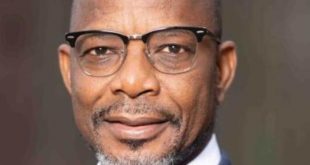Ndubuisi Francis and Udora Orizu in Abuja
As the African Development Bank (AfDB) officially opens its first regional office in Abuja Thursday, the pan-African financial institution says it is set to embark on priority projects in Nigeria, some of which it plans to deliver this year.
Some of the projects, which are largely in the power and health sectors, with a cost implication of about $2 billion are designed to stimulate growth in Nigeria, the bank’s largest investor.
Speaking at an interactive session with journalists in Abuja yesterday, the Senior Director, Research and Development, Nigeria Country Office of AfDB, Mr. Faal Ebrima, said the bank’s support in Nigeria in the last four years had averaged between $700 and $900 million a year, adding that this year’s support would be much higher.
According to him, a $27 million world class hospital christened ‘Santa Clara’ is to be completed in Lagos this year to check the spate of medical tourism by Nigerians to Europe, Asia and the United States of America.
“In terms of Santa Clara project, the total value of the investments is about 27 million US dollars,” he said.
He also cited a $36 million cassava project, which he said is a private sector project like the hospital.
The AfDB chief also disclosed that a solar power project in Jigawa State with a cost of about $200 million as well as a 55 megawatts solar project in Sokoto valued at $100 million are to be executed.
“The biggest project that we are working on in the power space this year is called the Qua-Iboe Power project in Akwa Ibom and that’s a 540 megawatts power project (about $900 million.
“There’s a Bauchi solar project which is about a $170 million dollars and there is a sky power solar project as well. So, as you can see, there’s a lot of solar projects coming up,” he said.
He explained another major project that the bank is hoping to execute this year is a transmission lines project with the Transmission Company of Nigeria (TCN).
Explaining why the bank considered it worth the while, he said, “the power is there but how are you going to distribute it, so that’s going to be an important project that we can also bring this year.”
He added, “We are also working very closely and partnering with the government not only in terms of the physical projects themselves but also what are the policies and regulatory frameworks that are needed to support the power programme of the government. So that is part of the non-project things that we work on but very important as well.”
Ebrima, who also spoke the bank’s programme called “Jobs for Youths”, he said AfDB was trying to mainstream two things– “mainstream gender to women and mainstream jobs for youths especially.”
The AfDB top executive, who provided an insight into what led to the building of the Abuja regional office of the Bank, the first outside the headquarters in Abidjan, Cote d’Ivoire, said in November 2009, the bank’s Boards of Directors approved the Project “Rent or Acquire Premises for Field Offices.” In this project, it was recommended to construct a new office in Nigeria.
Nigeria, he said, was chosen to be the first in series to receive this project, adding that its field office, constitute a model for replication in other countries.
According to him , following several discussions with, the Federal Capital Territory (FCT) , in September 2010, allocated a plot of land number 1521 with an area of approximately 7,614 m2 in the Central Area, Abuja, for the project.
He disclosed that a Nigerian architectural consulting firm IAL was contracted to design and supervise the works, which commenced in November 2011.
“The detailed designs and tender documents were then finalised in August 2013. The building designed has footprint of 1525m2 and total office area of 6100m2,
“The bid for construction was launched in August 2013 but failed because the identified contractor fail to pass the due diligence checks. A new bidding process launched in May 2015 led to a conclusion of a contract with CGC Nigeria Limited.
“Work commenced in January 2016 and the building was completed and furnished by end of September 2017,” he said.
Noting that the state-of-the-art building is environmentally friendly, Ebrima stated:
“We are in the process of installing solar thermal technology as additional source of cooling and lighting the building and the premises.”
He also disclosed that already, battery charging terminals for electric cars had already been installed in the building.
 DailyrecordNg …Nigeria's hottest news blog
DailyrecordNg …Nigeria's hottest news blog







